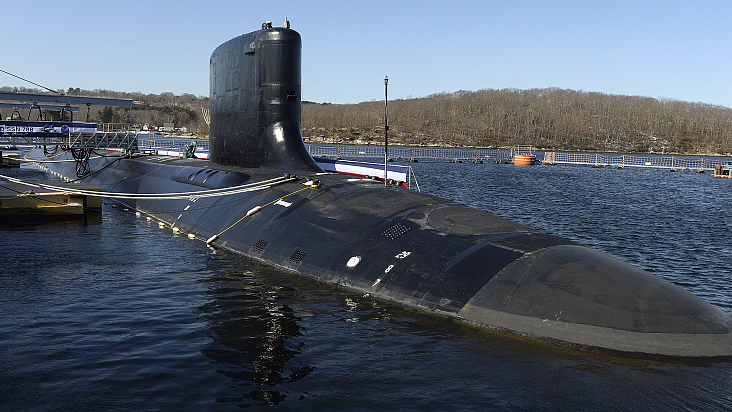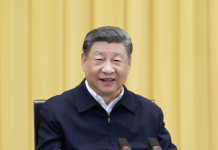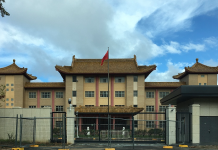BEIJING: China is seriously concerned about the recent statement made by the director general of the International Atomic Energy Agency (IAEA) on nuclear submarine cooperation between the U.S., the UK and Australia, and firmly opposes the IAEA making an endorsement for the pact under duress, Chinese Foreign Ministry spokesperson Wang Wenbin said on Wednesday.
The U.S., the UK and Australia recently unveiled details of their plan to create a new fleet of nuclear-powered submarines in the Asia-Pacific region. Under the AUKUS pact, Australia, a non-nuclear-weapon state, is to get its first batch of nuclear-powered submarines from the U.S. and the allies will also work to create a new fleet using cutting-edge tech, including UK-made Rolls-Royce reactors.
Wang said that the commitment to nuclear non-proliferation by the three countries is pure deception as this is the first time that a nuclear-weapon state transfers nuclear submarine power reactors and weapons-grade highly enriched uranium to a non-nuclear-weapon state, which can not be effectively supervised by the IAEA under its current oversight system. It means the IAEA can’t guarantee that Australia will not use relevant nuclear materials to manufacture nuclear weapons. “Therefore, the pact poses a serious nuclear proliferation risk, violates the purpose and principle of the Treaty on the Non-Proliferation of Nuclear Weapons (NPT) and impairs the international nuclear non-proliferation system,” Wang said.
He also stressed that the IAEA and the three states have no right to reach secret dealings on the nuclear submarine safeguards issue, and the real purpose of the three countries is to seek exemption from IAEA safeguards by citing Article 14 of the Comprehensive Safeguards Agreement (CSA). Wang said that the international society has wide differences in the application of Article 14, and has reached no consensus on the definition of activities listed in Article 14. “These are all recognized outstanding issues in the international nuclear arms control field. The U.S., the UK, Australia and the secretariat of the IAEA have no right to interpret them without authorization,” Wang said. He added that the arrangements in Article 14 involve the interests of all IAEA member countries and it should be discussed by all interested states. The IAEA Secretariat should not engage in private deals with the three countries before all interested states reach any consensus.
Wang urged the three countries to fulfill their nuclear non-proliferation obligations and the IAEA Secretariat not to endorse the AUKUS deal. At the same time, he also called on all IAEA member states to actively promote the intergovernmental process and find a solution to the safeguards issues related to nuclear submarine cooperation, so that international peace and security can be maintained.
–The Daily Mail-CGTN
news exchange item






